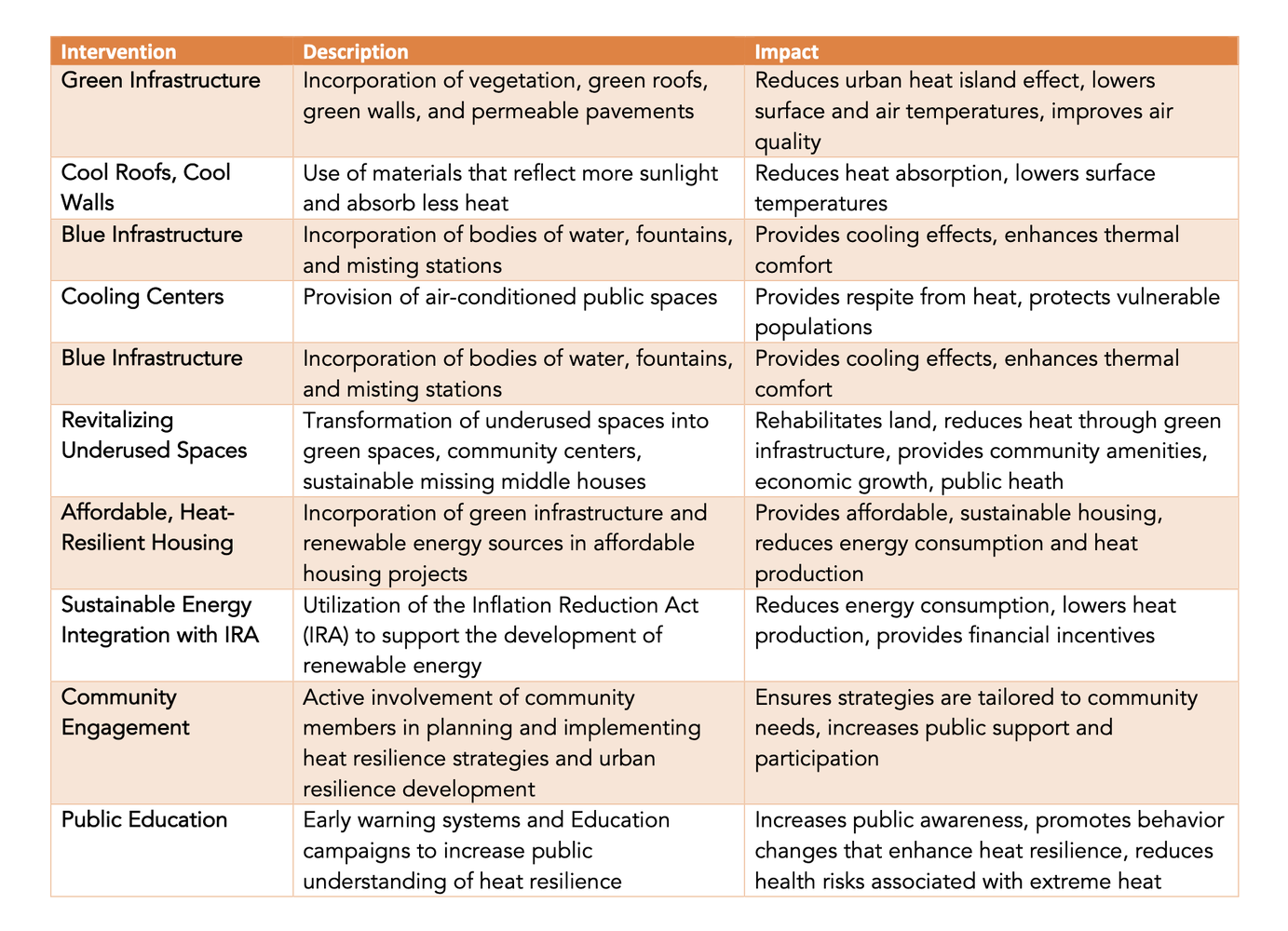Heat Resilience: More Than a Luxury, A Lifesaver
"Heat resilience" has emerged as a development priority as #globalwarming increases. The enormous possibility of using this knowledge at the community level has been clear to me as someone who conducted research on #extremeheat, #thermalcomfort #urbanplanning and #publichealth throughout my PhD research.
Dr. Ladd Keith, Dr. Sara Meerow as a leading experts on the impacts of extreme heat on communities, define heat resilience as "proactively mitigating and managing urban heat across the many systems and sectors it affects." It involves reducing heat exposure and vulnerability while enhancing adaptive capacity, crucial in areas where the "heat island" effect heightens the risk to public health, infrastructure, and the environment.
A critical element of my PhD research was developing the "Heat Resilience Metric" table. This summarizing tool showcases the practical application of heat resilience strategies, built on Dr. Keith's sage advice. By introducing this metric in this article, I want to provide providing a simple and straightforward approach and for communities, developers, and policymakers to get implement these strategies. The idea is to make understanding and using heat resilience strategies ideas easier, so more people use them.
Extreme Heat Resilience Metric (Ida Sami, 2023)
When these strategies are effectively implemented, they significantly improve the resilience of areas against high temperatures. This creates more comfortable living environments, for residents during periods of extreme heat.
So what is the role of the Inflation Reduction Act? The Inflation Reduction Act (IRA) is a recently passed U.S. law that aims to reduce inflation and promote healthy environments and lifestyles. The IRA has introduced twelve tax credits, called “direct-pay” tax credits, that can be utilized for local climate and resilience investments. This presents an opportunity to financially support clean energy microgrids that directly power public infrastructure. Consequently, such investments can mitigate power failure risks during heat waves, ultimately saving lives. Consequently, such investments can mitigate power failure risks during heat waves, ultimately saving lives.
We need to realize that heat resilience isn't a luxury, it's a must. As we work harder to combat climate change, our cities need to expand wisely, always considering resilience. Let's make sure we start building heat resilience where it matters most - at the community level.
#climateaction #extremeheat #resilience #humanhealth #inflationreductionact #urbanresilience

